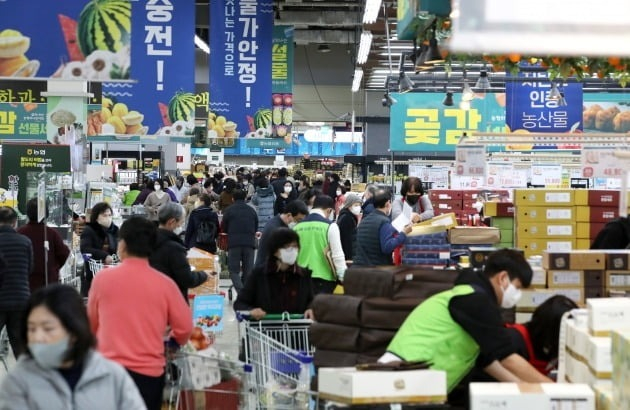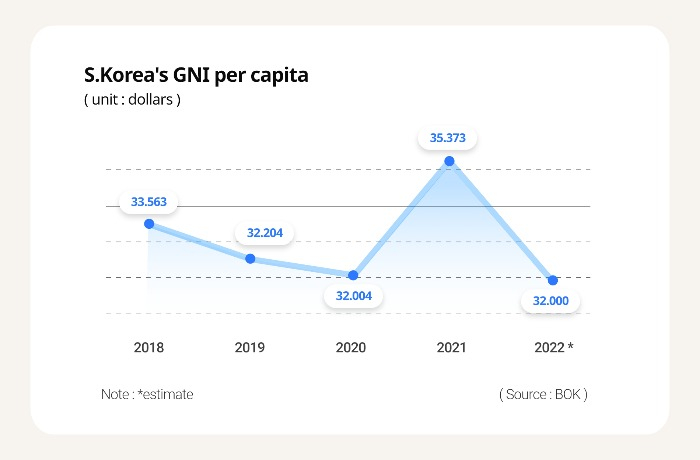Economy
S.Korea's GNI per capita falls in 2022 on foreign exchange fluctuation
The figure as expressed in dollars is forecast to decline -- sluggish economic growth being a key factor
By Jan 18, 2023 (Gmt+09:00)
1
Min read
Most Read
LG Chem to sell water filter business to Glenwood PE for $692 million


KT&G eyes overseas M&A after rejecting activist fund's offer


Mirae Asset to be named Korea Post’s core real estate fund operator


StockX in merger talks with Naver’s online reseller Kream


Meritz backs half of ex-manager’s $210 mn hedge fund



South Korea's gross national income (GNI) per capita last year likely fell under $35,000, a figure first reached in 2021, due to sluggish economic growth and the sharp drop in the won's value.
A report on Tuesday estimated GNI per capita last year at $32,000, down 9% from 2021. The figure, which represents the combined income earned by one person at home and abroad in a calendar year divided by the country's population, is a leading indicator of a nation's standard of living.
The biggest reason cited for the decline in average income last year was the won's plummeting value. The average dollar/won exchange rate last year soared 12.9% year on year, meaning the won's value fell by that rate.

The real economic growth rate, another factor behind GNI per capita, is thought to have fallen after posting 4.1% in 2021, with the central bank saying growth last year seems to have reached 2.6%. Even consideration of the GDP deflator, which reflects inflation and is calculated by dividing nominal GDP by real GDP, does not offset the depth of the won's decline in value.
In 2021, GNI per capita in Korea broke $35,000 for the first time given favorable economic growth due to the base effect of COVID-19 and the ensuing surge in the won's value. The amount first hit $30,000 in 2017 with $31,734 and rose to $33,563 in 2018, followed by two years of decline with $32,204 in 2019 and $30,2004 in 2020.
Write to Mi-Hyun Jo at mwise@hankyung.com
More to Read
-

-
 Foreign exchangeKorean won to stay weaker than profitable levels – poll
Foreign exchangeKorean won to stay weaker than profitable levels – pollJan 02, 2023 (Gmt+09:00)
1 Min read -
 EconomyKDI cuts Korea growth forecast, urges gradual rate hikes
EconomyKDI cuts Korea growth forecast, urges gradual rate hikesNov 11, 2022 (Gmt+09:00)
2 Min read -
 EconomyKorea GNI per capita at record on strong economic growth
EconomyKorea GNI per capita at record on strong economic growthMar 03, 2022 (Gmt+09:00)
2 Min read
Comment 0
LOG IN


